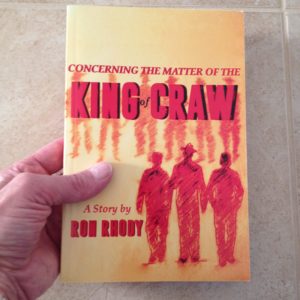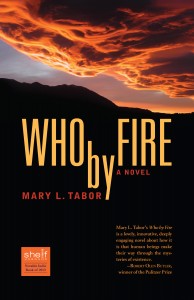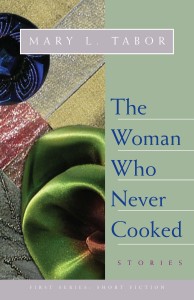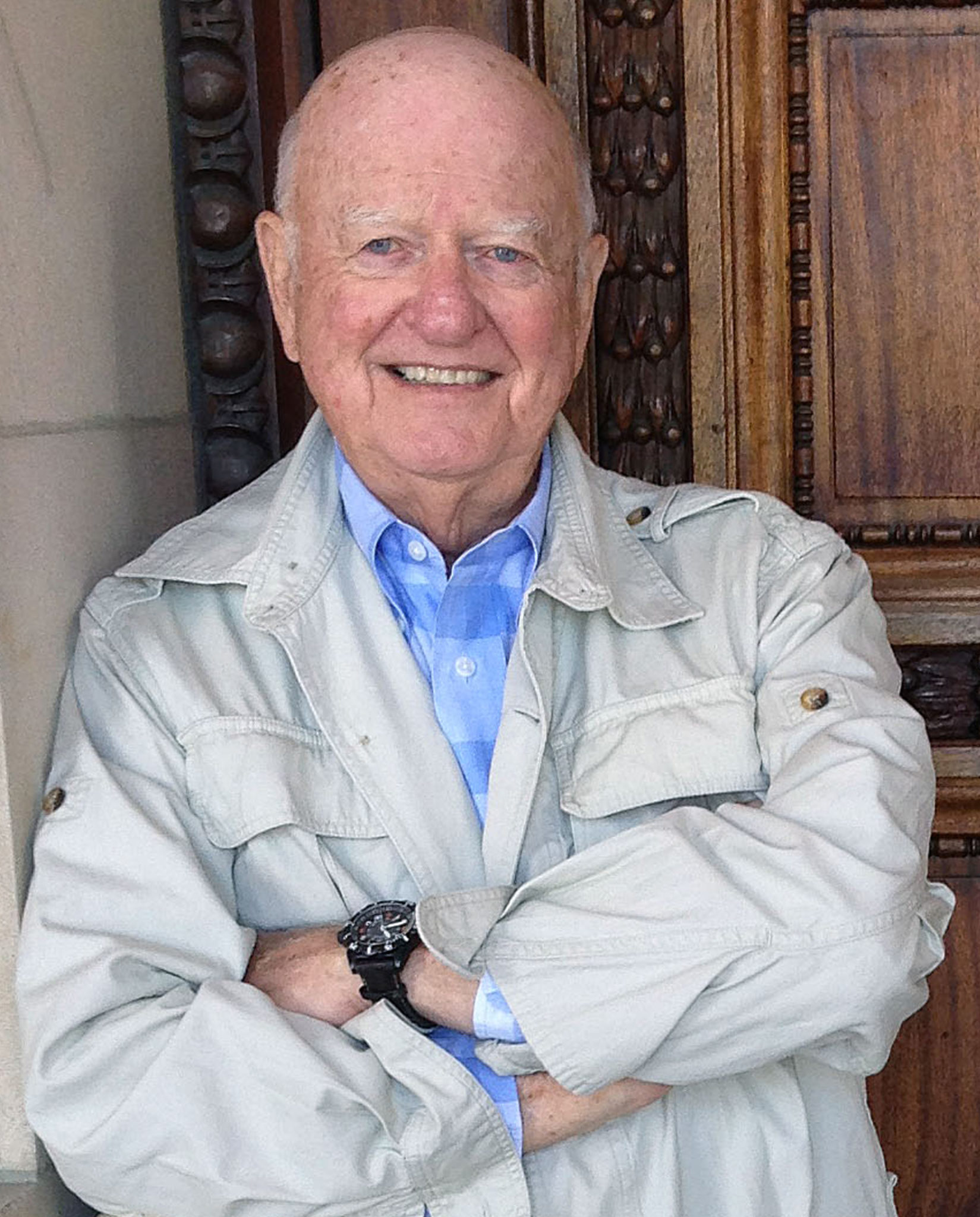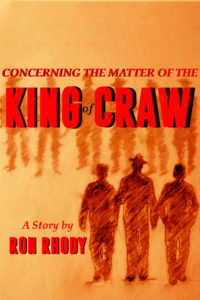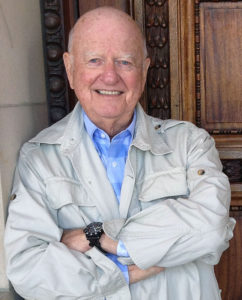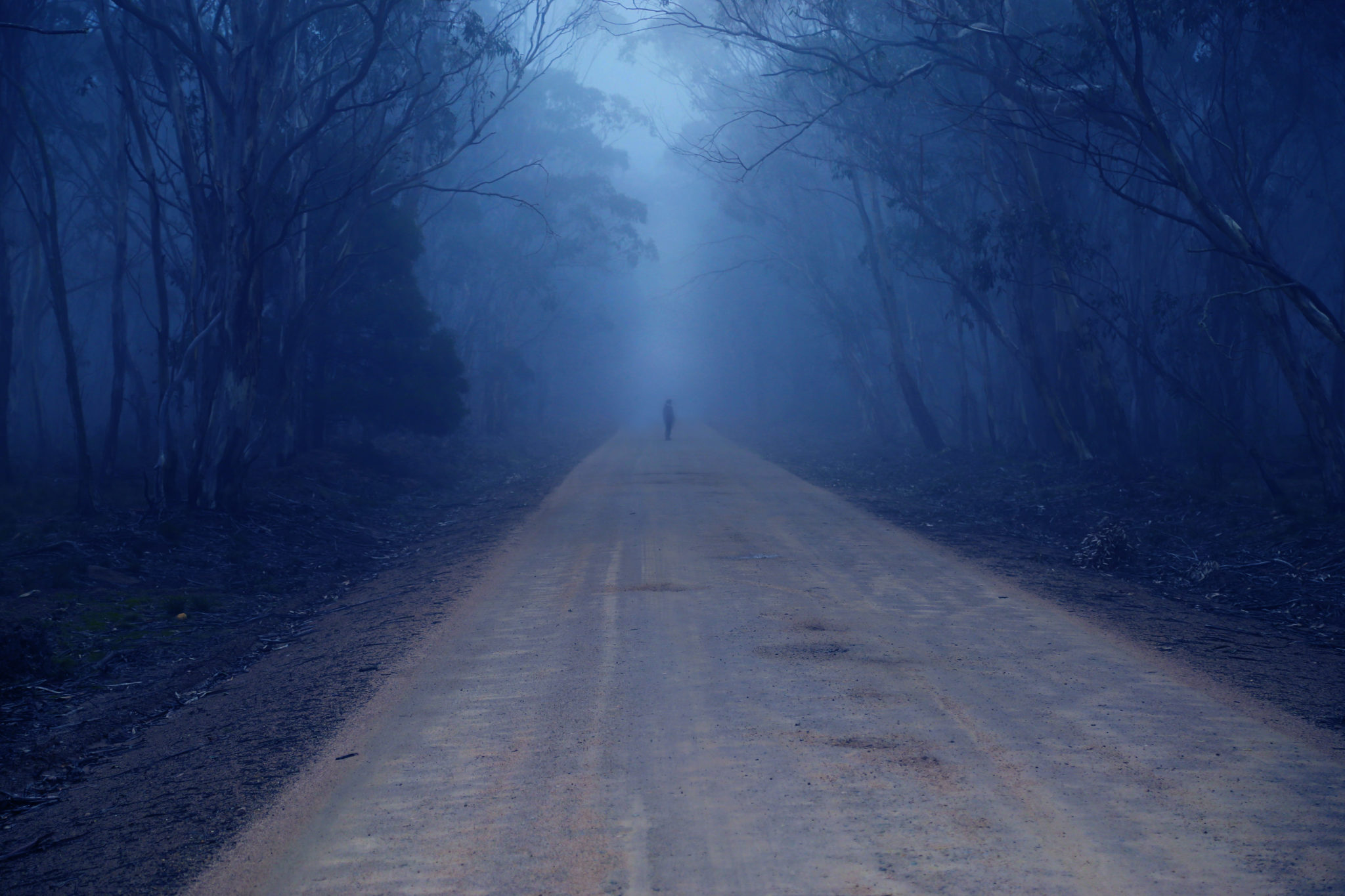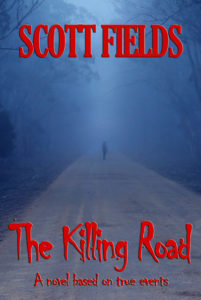
Novelist Ron Rhody
Outer Banks Publishing Group author Ron Rhody has agreed to serialize a few chapters of his newest novel, Concerning The Matter of The King of Craw, giving readers a sneak peak into his book based the real life of John Fallis, a legendary figure, who was like a Robin Hood in Frankfort, Kentucky during the Roaring Twenties.
Each week, we will present a new chapter here or you can read it on Ron’s blog. Here is the second chapter Ron released.
Sketch by Karen Piedmont of the “Craw” section of Frankfort, KY in the early twenties.
CONCERNING THE MATTER OF THE KING OF CRAW will be released Nov. 5, 2016 at the Kentucky Book Fair, Frankfort, KY. You can pre-order a copy from our bookstore at the publisher’s pre-release price of $11.99.
By Ron Rhody
CHAPTER FOUR: RISE PEON
Monday came.
Collection day.
The day Tubby and his merry men would be expecting to collect their tribute, the day that would mark the start of my second full week of school in this town still strange to me, the day that would set the way my peers would think of me.
I knew they knew of Tubby’s shakedowns. They must have talked of it. The word must have gotten around. Not that they were likely to ostracize the timid and the weak among them. They’d just have no respect for them.
I understood that. If you don’t respect yourself, no one else will. To prove that you do, you can’t let others push you around.
While I was a boy, the only instruction I ever had in fighting came the afternoon Andy Charbonneau got beat up.
Jigger Swinson beat hell out of him. Jigger was the biggest and meanest boy in class.
We were playing marbles after school behind the swings. Jigger said Andy cheated. He grabbed Andy’s taw and wouldn’t give it back. Andy called him a liar.
“Don’t call me a liar you little bastard.” He took Andy apart.
When Andy couldn’t stand up any longer, Jigger kicked him in the side and walked away with Andy’s taw.
Jimmy D. and Winston and me helped him home. Andy’s dad, the guide, the elk hunter, was there. “What happened, boys” he said as he washed the blood from Andy’s face.
Mr. Charbonneau, Baptiste Charbonneau, was a cheerful man with an easy way and the build of a bear. His face was wind-burned and sunburned and his eyes crinkled at the sides when he smiled. No smiles now.
When we finished, Mr. Charbonneau said, “Did anybody help this Jigger Swinson beat on Andrew?”
“No, sir.”
He waited a moment or two, considering, then said, “I’m not for fighting, boys. But some things you can’t let pass.”
He looked around to each of us. “I want all you boys to pay attention to this.”
Another long pause, waiting to be sure we were listening.
“I don’t expect you to fight unless you have to. But from time to time you’ll have to. Life works that way.” He seemed saddened by that, but continued.
“If there’s going to be a fight, don’t stand around jawing. Don’t waste time pushing or shoving. Knock the sonofabitch down and stomp on him. Hit him as hard as you can! Go for the stomach. Knock his wind out. When he bends over to try to get a breath, hit him behind the head with both your hands locked together. When he falls, stomp on his hands so he won’t be able to hit again for a long time. Don’t give him any quarter. Don’t give him time to collect himself.”
Mr. Charbonneau was a respected man. He had to master the mountains. Sometimes had to master the egos of the swells who could afford his skills but who drank too much or wanted to take a calf for the meat when it was bulls only season and he wouldn’t permit it.
We listened.
“Beat him so bad he’ll never want to fight you again,” he said. “Blow through him like a Maria and then stand over him and tell him if he ever sees you coming he damn well better get out of the way.”
We were gathered in his kitchen when he told us this. Andy was sitting on a stool by the sink with the bloodstained washcloth floating in the basin and we were ringed around him. Mr. Charbonneau was standing behind Andy with his hand on Andy’s shoulder.
“Understand, boys? Understand what I’m telling you? Don’t get caught up in ideas about fair fights. There are no fair fights. You hit first! Hit with as much force as you’ve got. Drop him down and stomp on him before he knows what’s happening. Make him never dare mess with you again.”
He ran his gaze over each of us, satisfying himself that we understood.
“Now, Andrew,” he said, moving around to stand in front of Andy. “I want you to go find this boy Jigger Swinson. I want you to give him that message. And I want you to get your taw back.”
He walked to the corner by the fireplace where he kept a staff that he used when he was scouting in the mountains, a long wooden staff of fire-hardened oak that had been shaved into round and varnished slick. He hefted it, swung it, slapped it against his open palm a couple of times, walked to the window and looked out. The afternoon was fading but there was still an hour or two to sunset. He walked back across the room to stand in front of Andy.
“This boy’s bigger than you. Take this to even that up. When you find him, don’t say anything.”
Mr. Carbonneau raised the staff above his head and swung it down in a sweeping arc.
“Smash him! Hit down, like you’re chopping a log. Hold the staff in both hands. Hit hard. Aim for a spot between the shoulder blade and the neck. Then switch your hold and swing like you’re hitting a baseball and hit him across the upper arm.”
He drew back, pivoted and stepped into the swing as if he expected to drive it out of the park.
“Then swing it down and bark his shins. Then stab it into his gut. When he falls, stand over him and jam the stick into his neck where the Adam’s Apple is. Not too hard. You’ll kill him if you press too hard.”
Mr. Charbonneau stood there, legs apart with the staff’s point shoved into the floor at his feet and him leaning into it, steel in his tone.
“Tell him give me back my taw. Tell him don’t you dare come at me again.”
He handed the staff to Andy. “Go now.”
And turned to us. We were breathless at what we’d seen, shocked at what we’d heard. “You boys go with him,” he said. “See that no one interferes.”
No one did.
Andy got his taw back.
Jigger Swinson didn’t mess with any of us again.
I remembered.
Tubby and his three merry men circled me when class let out for morning recess.
“Pretty boy, pretty boy, we’re waiting for you. It’s Monday morning and tribute is due.”
They were standing by the outside water fountain. You had to pass it on the way to the playground. Tubby made his little sing-song chant loud enough to be heard by those who were passing. Most of the class knew what to expect. They didn’t stop as they passed but began to gather in little groups just far enough away to be close enough to watch.
The morning was chilly. Tubby had on knickers again and a neatly knotted tie and a button- up sweater, with hair slicked back and an arrogant smile. He stood hands on hips, looking big and threatening. The three merry men grinned at each other.
He held out his right hand, palm up, smirking. I smiled right back and drove my fist into his gut with all the force I had. Tubby’s eyes widened. He folded over, gasping, and I hit him behind the neck with my interlocked hands. He splayed out flat, almost bouncing off the concrete pavement at the base of the fountain. I let him lay gasping for a minute, then rolled him over and knelt down with my knee in his chest. I grabbed his tie and forced his gagging face up to look me in the eyes. The surprise on his face was deeper than the pain.
“Wha….” he tried say but he was fighting too hard to breathe.
I tightened my grip on his tie. “Tubby, the peons have risen,” I said.
I dropped him down then and rose to deal with the merry men. But there was no need. Lucas was standing behind me, protecting my back.
Across the schoolyard kids were running in to get closer.
Tubby was still on his back gasping for breath. The merry men seemed dazed. Lucas nodded his head toward Tubby and said to them, “Your little shakedown is over, boys. I wouldn’t try it again or pretty boy might get mad. Now pick your friend up, clean him up, and get out of here.”
Then he turned to me laughing and shaking his head said, “Where’d you learn that!”
(more to come)
The Publisher
#OBXPublishing,
Bluegrass Folklore,
Concerning The Matter of The King of Craw,
Frankfort,
King of Craw,
KY,
OBX,
OBX books,
OBX Publishing,
OBX Publishing Group,
OBXPublish,
Outer Banks,
Outer Banks Publishers,
Outer Banks Publishing Group,
Outer banks publishing group books,
Roaring Twenties,
Ron Rhody
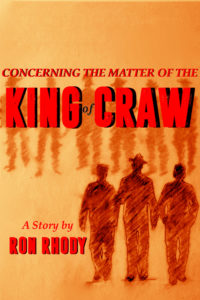 List Price: $16.99
List Price: $16.99
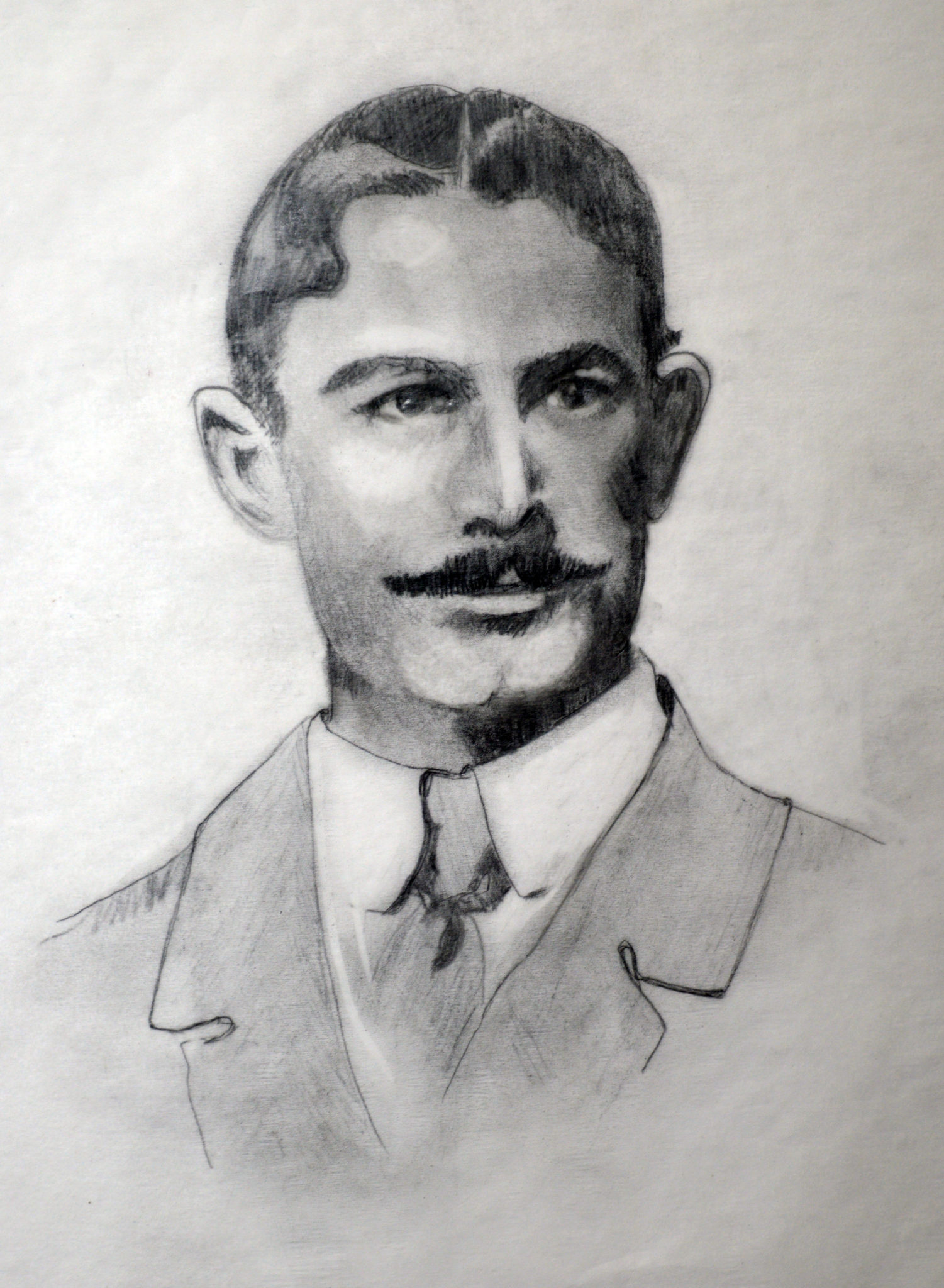

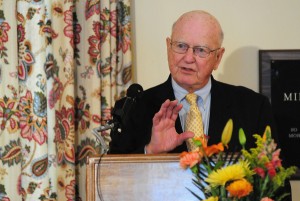

 In addition to the 35th anniversary of the Kentucky Book Fair, the organizers are celebrating the 6th Annual KBF Kids Day, on Nov. 4, where hundreds of Kentucky students are given the opportunity to interact with authors in a series of engaging presentations.
In addition to the 35th anniversary of the Kentucky Book Fair, the organizers are celebrating the 6th Annual KBF Kids Day, on Nov. 4, where hundreds of Kentucky students are given the opportunity to interact with authors in a series of engaging presentations.
 ambler, bootlegger, and political boss, and the two boys who fell into his orbit.
ambler, bootlegger, and political boss, and the two boys who fell into his orbit.